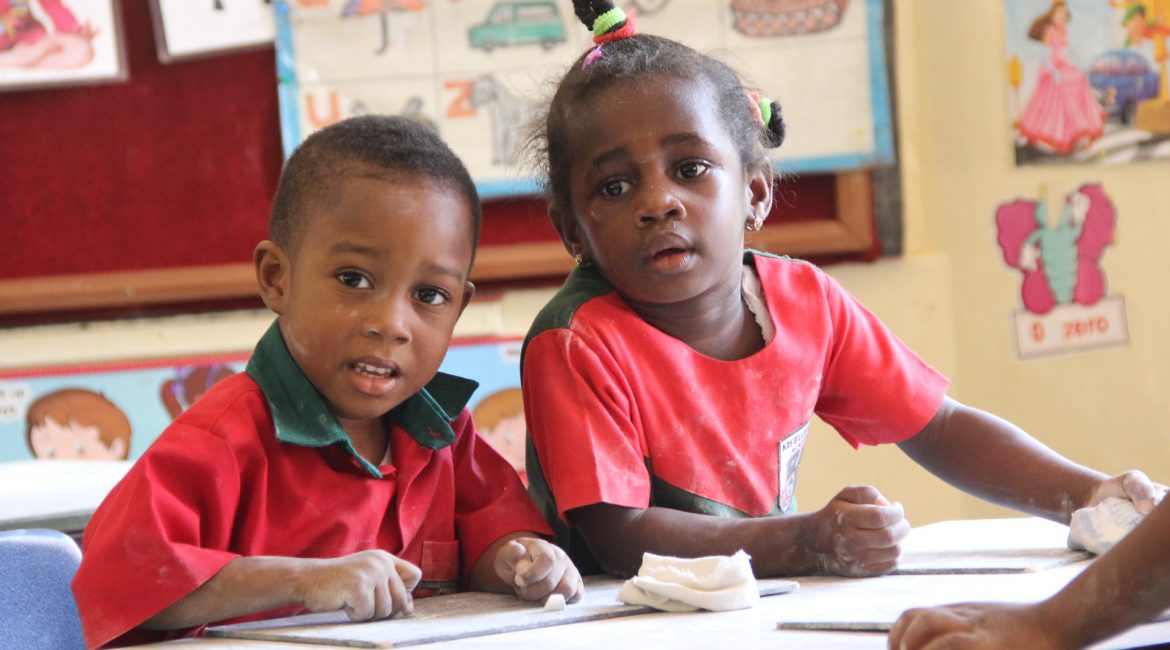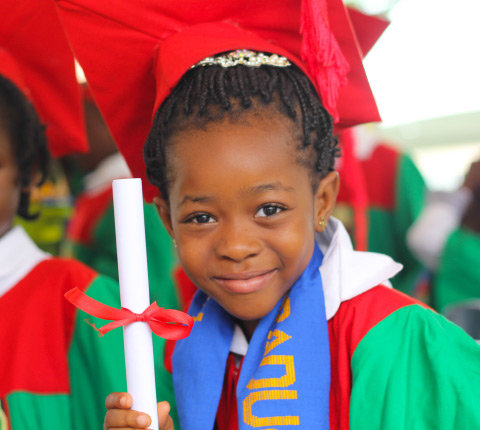Preschool Curriculum
Infant, Nursery, Reception (1 to 4 year olds)

Early Childhood Development Programme
The three-year Early Childhood Development Programme provides an exciting and stimulating environment where the needs of the whole child are nurtured. Respect for the uniqueness of each child is central to the Early Childhood Development Programme, with each child’s developmental level considered and accommodated. Different levels of ability, development and learning styles are expected, accepted and used to design appropriate activities.
Teachers in the Early Childhood Programme prepare the classroom environment for children to learn through active exploration and interaction with adults, other children and materials.
Addressing each child’s social and emotional needs is an essential part of the Early Childhood Development Programme. Fundamental is a positive self-image for all children — feeling confident about themselves, their ideas, and their abilities. Each child is encouraged to take risks and to view mistakes as natural learning experiences. The ages from 1 to 5 are times when children become more sensitive and aware of those around them and learn to be tolerant and respectful of the different ethnic origins, feelings and abilities of others. Children also learn to develop and sustain good relationships.
The Curriculum
Children are taught to read with a blend of phonics and whole language, starting with a literature-rich environment in Nursery and Reception. These young students learn letter sounds and begin to piece together words to read.
Writing follows a similar path, where the initial attempts at writing in books with invented spelling are supported and encouraged, allowing the children to take risks and express their ideas. Gradually, they learn standard spelling and are also taught to organise their writing increasingly sophisticatedly.
Our math program’s essential goals are to develop deep conceptual understanding and a problem-solving mindset, which helps our young learners achieve early mathematics skills and the foundation needed to succeed in primary mathematics. The curriculum draws from the best teaching and learning practices of Singapore Math. An example of this is the Concrete-Pictorial-Abstract (CPA) approach.
The CPA approach is used to develop a deep conceptual understanding. Each lesson starts with hands-on activities during which students participate in concrete mathematical experiences. Concepts are then presented with pictures before students learn to represent the concepts using numbers and mathematical symbols. This also helps in developing metacognitive skills.
Learning activities build on children’s natural interests and offer children the time and freedom to construct and reflect on math ideas.
The science program teaches students to be young scientists who make and test hypotheses and use effective inquiry to learn about things. Students learn through hands-on study and exploration of the natural and built world.
Art projects are an integral part of the classroom curriculum. The teachers emphasise the importance of process, planning, and revision while helping the children to create artwork that is distinctly their own. A display of children’s artwork adorns our classroom walls year-round.
Physical Education classes emphasise good sportsmanship and lifelong fitness as the children are taught fundamental skills they will use competitively in Primary School. The children participate in a variety of sports, including football and athletics.
Homework is a part of school life, and we introduce it gradually in the Early Childhood Development Program. Students are given homework to practice skills learned in class and develop their independence and responsibility.

